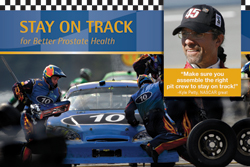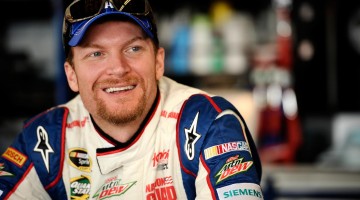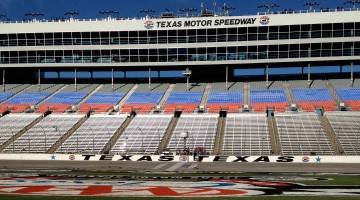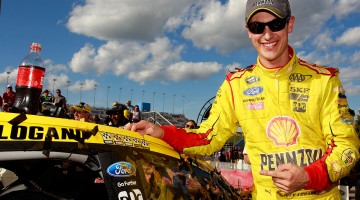 This morning I interviewed Kyle Petty, part-time driver of the No. 45 Wells Fargo Marathon PVA Dodge Charger, son to Richard Petty and grandson to Lee Petty. The name Petty is synonymous with NASCAR and I don’t think there’s anyone on the planet that doesn’t know who they are or what they’re famous for — there’s been a Petty racing in every NASCAR season since the sport’s inception in 1949. So speaking with Kyle was an honor, to say the least.
This morning I interviewed Kyle Petty, part-time driver of the No. 45 Wells Fargo Marathon PVA Dodge Charger, son to Richard Petty and grandson to Lee Petty. The name Petty is synonymous with NASCAR and I don’t think there’s anyone on the planet that doesn’t know who they are or what they’re famous for — there’s been a Petty racing in every NASCAR season since the sport’s inception in 1949. So speaking with Kyle was an honor, to say the least.
In this first post Kyle talks about Prostate Cancer Awareness Week (which is this week) and how this subject hits home with him and his family. Stay tuned for subsequent posts that will cover things like the importance of physical fitness for race car drivers, his impending musical performance at Dale Earnhardt Jr.’s charity concert in October and what the future holds for his racing career.
—
Me: Tell me why Prostate Cancer Awareness Week means so much to you.
Kyle Petty: Because it runs in our family. My grandfather in the later years of his life was diagnosed with it. My father went through prostate cancer in the early to mid 90s. So obviously at my age and with my family history I am in a high risk category. And we do so much; we have a camp in North Carolina called the Victory Junction Gang Camp which is a camp for children with chronic and life threatening illnesses. We see so many diseases that are preventable and treatable, once they are diagnosed, that obviously being this close to [it] myself it’s important for me to understand what prostate cancer is all about.
I was fortunate to be asked to help with this. Early in the year in June we did a thing in Michigan International Speedway and had a booth, STAY ON TRACK for Better Prostate Health. Had a great time, had a great turn out up there with people at the racetrack who came out and wanted to know more about it. We asked them to take the “Kyle Petty Prostate Inspection Pledge,” to go to the website — www.pcaw.com — to get the manual STAY ON TRACK, a manual for better prostate health. It really explains everything about prostate cancer from symptoms to being diagnosed, and once you’re diagnosed the process you go through.
Obviously we’re in a sport where team work is important, and my father kind of approached it like a pit crew and put together a pit crew of a medical oncologist, a radiation oncologist, a urologist. Basically we looked at it like a pit crew, like a team that was trying to attack the problem and figure out the best way around it just like they would from the race shop side.
This isn’t something that you just talk about. This is something that’s obviously touched my life on a couple of different occasions and it has the potential to be apart of my life for years to come. So to get the awareness out there, to be able to talk to race fans and get race fans involved in it, and have an understanding with the race fans of what this is all about and get them behind it is important.



